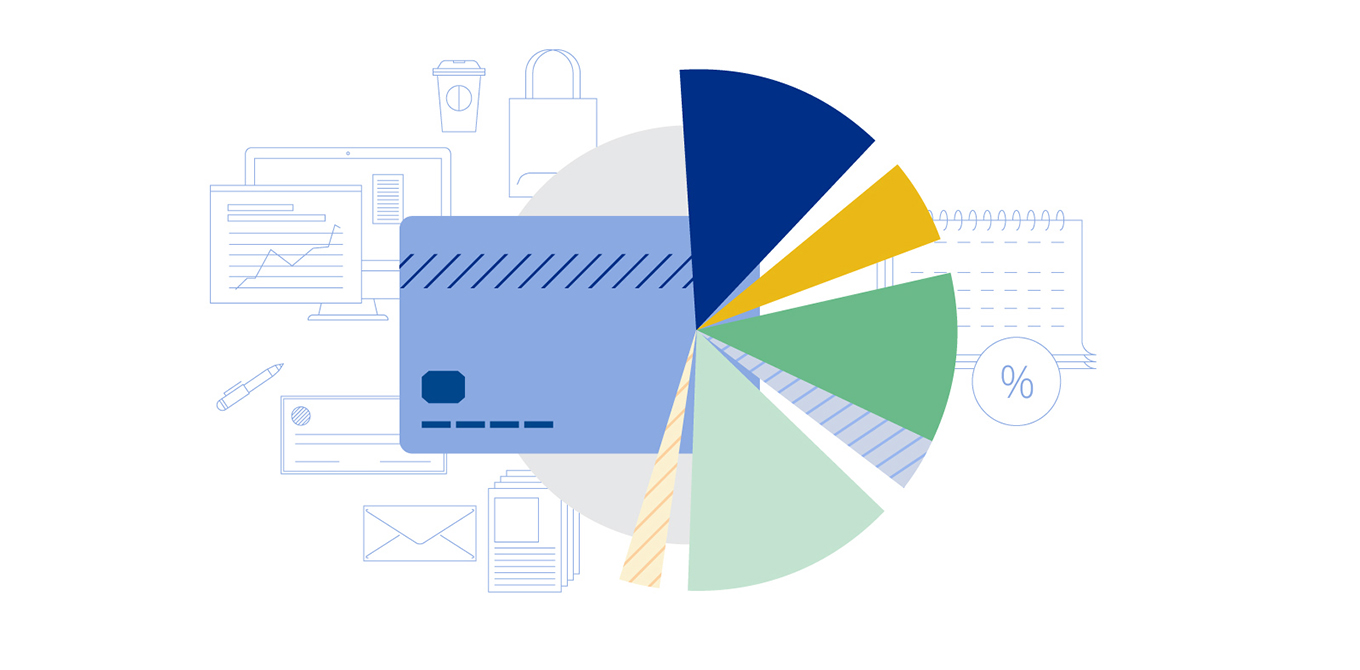How Debt-To-Income Ratio impacts your finances
If you're applying for a loan, a mortgage, or a new line of credit, you need to understand something called debt-to-income ratio. Most people understand that when banks and lenders are deciding whether to issue a loan to you, they review your creditworthiness, including credit score and other information about how you borrow and spend money.
But what you may not know is that debt-to-income (DTI) ratio is part of that review process. Make sure you know your DTI ratio and how it could impact you.
What is a Debt-to-Income Ratio and why does it matter?
A debt-to-income ratio is calculated with your total monthly debt payments (student loans, mortgage, car payments, credit card payments), and your monthly gross (pre-tax) income. It's a concrete number that can illustrate your ability to take on more debt.
When lenders are deciding whether to approve you for a loan, they will ask you for information about your finances and credit history, including information about your debts so they can calculate your debt-to-income ratio.
Many people know their credit score and are familiar with what is a “good" credit score and why the credit score is important. However, the debt-to-income ratio should also be part of your general financial literacy. Knowing your debt-to-income ratio can help you measure your overall financial health and determine whether your debts are at a manageable level.
How to Calculate Your Debt-to-Income Ratio
Calculating your DTI ratio is fairly simple.
1. Add up your monthly debt payments (mortgage, credit cards, auto loan, student loan, etc.)
2. Divide that total number by your gross monthly income (before taxes and deductions)
For example, if you have a mortgage of $1,000 per month, a car loan of $300 per month, and a student loan of $200 per month, your total monthly debt payments are $1,500. If your gross monthly income is $5,000, then your debt-to-income ratio is $1,500/$5,000 = 0.30, or 30%.
How Much Debt is Too Much?"
If your debt-to-income ratio is too high, in addition to having trouble paying bills, you might not be approved for a future loan, including certain kinds of mortgages. According to the Consumer Financial Protection Bureau, a debt-to-income ratio of 43% is the highest you can have and still be approved for a Qualified Mortgage.
Generally, you want to target a debt-to-income ratio of 36% or lower. Since DTI doesn't include other monthly expenses (groceries, utilities, etc.) giving yourself a cushion is a good idea. The National Foundation for Credit Counseling recommends that your mortgage payment be no more than 28% of your DTI ratio.
Even if your ratio is in the targeted range, if you are falling behind on your monthly payments or getting declined for loans, it could indicate that your debt is unmanageable and your DTI ratio is too high.
There is no easy answer to how much debt is too much. If you are getting declined for loans, that could be a sign that your debt-to-income ratio is too high. In that case, you might want to consider debt consolidation or consumer credit counseling.
Managing Debt for a Stronger Financial Future
Even if you are not currently planning to apply for a mortgage or other loans, you should take some time to calculate your debt-to-income ratio and understand how this number fits into your overall financial life.
If you know that you want to buy a house sometime soon, or if you want to apply for other loans such as a new car loan, you can help get ready for that future loan application by improving your debt-to-income ratio. You can do this by working to pay off or consolidate debt. Simple tips that are used to build your savings can also be reapplied to help you pay down debt.
In the same way that you should pay attention to your credit score and be careful to make on-time payments, you should also pay attention to your debt-to-income ratio. Knowing that your debt payments are at a manageable level can help you have a more secure and comfortable financial life.




